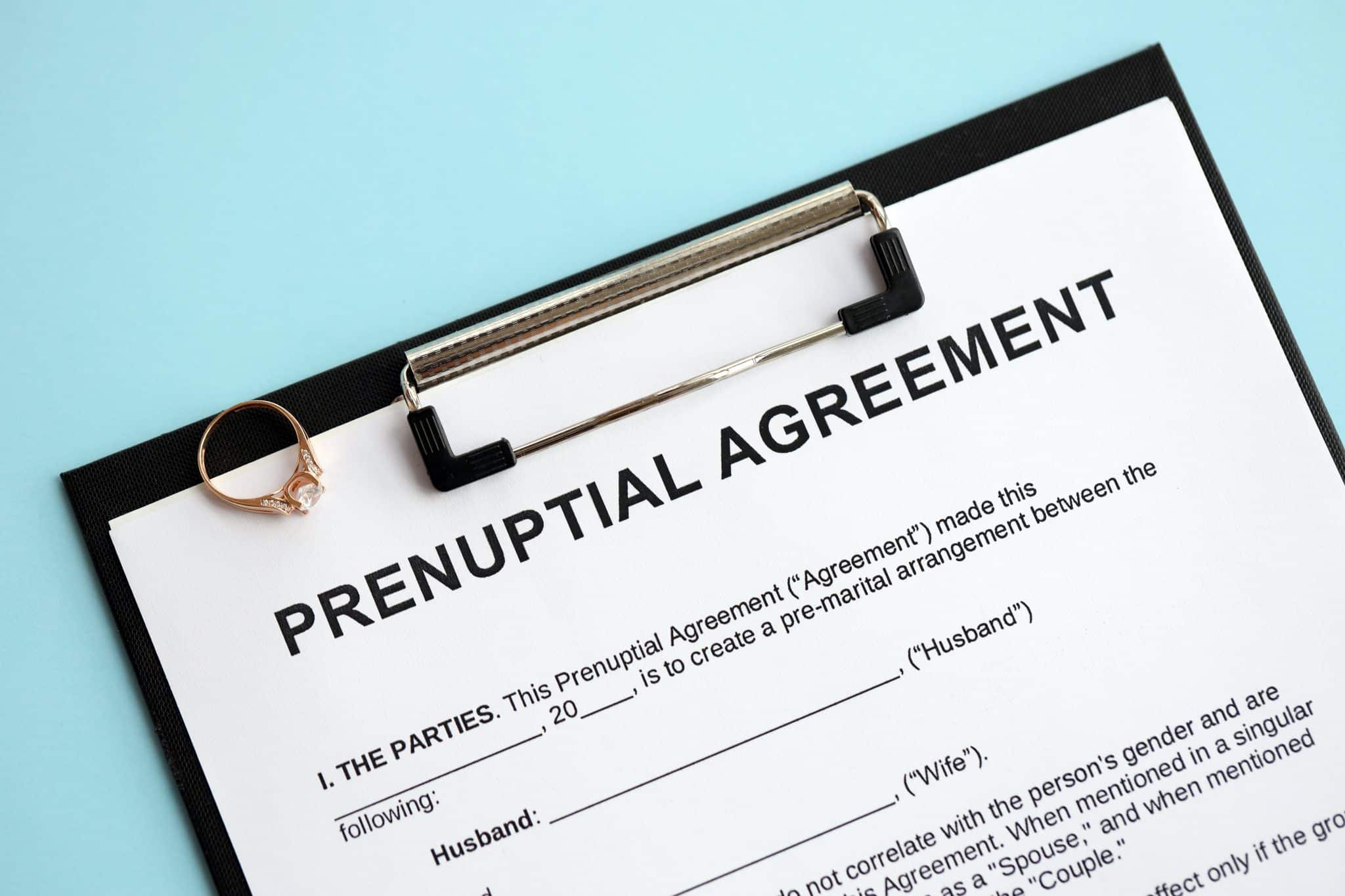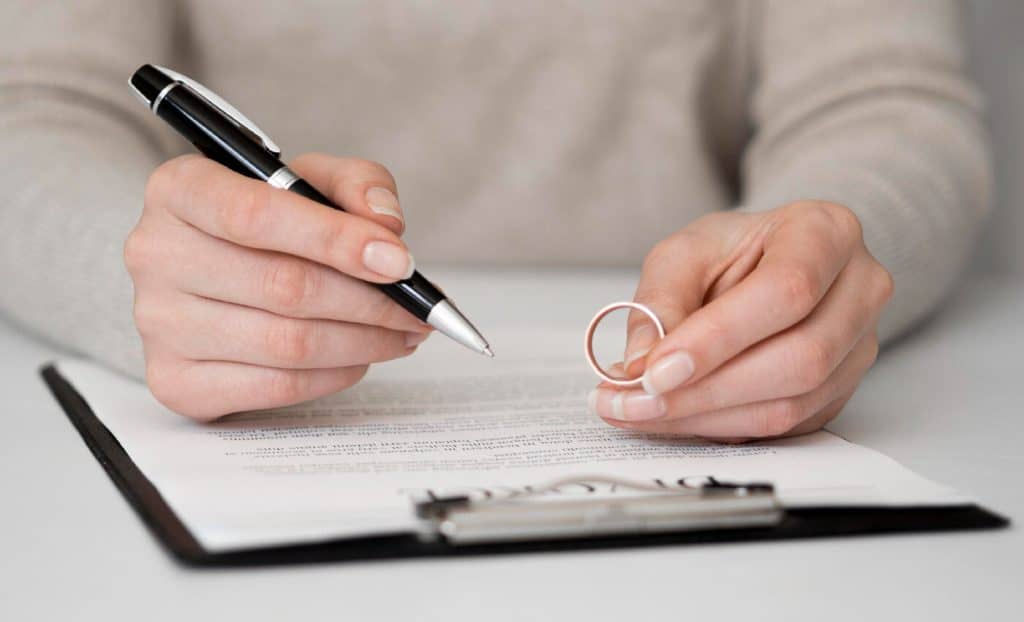In the midst of planning your marriage? Prenuptial agreements may not be the most romantic arrangement to throw into the mix, but they can be incredibly important if you want to protect your assets in the event of a divorce.
After all, while no one plans on getting divorced, a substantial 80,057 divorces were granted in England and Wales in 2022 alone. This can make obtaining a prenuptial agreement a wise choice for those wanting to safeguard their business interests, inheritances, and investments.
What is a prenuptial agreement?
A prenuptial agreement, also known as a premarital or antenuptial agreement, but more commonly referred to as a ‘prenup’, is a type of legal agreement made between two parties before they get married.
A written contract, it outlines exactly how the ownership of their respective assets should be handled in the event that the marriage ends, either through divorce or death.
Do prenups exist in the UK?
Yes, prenups do exist in the UK and are actually becoming increasingly common. However, it’s worth bearing in mind that prenuptial agreements aren’t automatically enforceable (legally binding) in courts in England and Wales.
This is because the law around prenuptial agreements is more complex in the UK. To be considered by UK courts in the case of a divorce, a prenuptial agreement must meet the qualifying criteria. It can then be used as persuasive evidence of each party’s intentions to the another.
What does a prenup do?
At its core, a prenuptial agreement outlines how assets should be divided in the event of a relationship breakdown, so in many cases it’s designed to protect or preserve the wealth of the individual(s) before they enter into the marriage.
Why does my wife want a prenup?
Wondering why your partner wants a prenup? They most common reason that your partner might ask you for a prenup is to protect their individual assets – this might be a bank account, property, pension, or even a future inheritance.
Alternatively, they may want to ensure ownership of debt is clear or simply benefit from the reassurance of knowing exactly how your assets would be divided between yourselves should your marriage come to an end.
Who benefits the most with a prenup?
Individuals who benefit the most from a prenup tend to be those who possess the most assets prior to the marriage. However, prenuptial agreements aren’t just reserved for the rich and famous – they can be used by anyone to reduce stress and uncertainty, helping to simplify and speed up divorce negotiations.
What cannot be included in a prenup in the UK?
While there are many exemptions as to what can be included in a prenuptial agreement, some of the main matters include illegal or unfair matters, personal and lifestyle affairs, as well as child support and custody arrangements.
Does a prenup save you money?
Prenuptial agreements can certainly save you money. Not only can they help to protect your wealth and the individual assets that were in place before you got married, but they can also play a crucial role in keeping divorce costs under control.
This is because valid prenuptial agreements are taken seriously by UK courts, so they can be used to bring divorce proceedings to a speedy conclusion, potentially saving you thousands in legal fees in the long-run.
How much should a prenup cost in the UK?
Depending on the value of the assets involved and complexity of the agreement, solicitors in the UK can charge anywhere between £1000-£5000 (plus VAT) to draft a prenuptial agreement. For a more accurate idea of your prenuptial agreement cost, please contact our experienced solicitors today.
Are prenups worth it?
So, should you consider getting a prenuptial agreement? While we always recommend receiving tailored legal advice based on your individual circumstances, there are some key advantages and areas to consider, such as:
Prenup advantages
- Agreement can provide more financial security
- Ensures an open and honest approach to marriage
- Helps to protect family assets, like businesses and inheritance
- Clearly outlines how assets should be divided
- Helps to simplify and speed up divorce proceedings
Things to consider
- Prenuptial agreements aren’t legally binding in the UK
- One party may feel more vulnerable
- Trust between the parties could feel challenged, causing tension
- Agreement must be contractually valid (e.g. both parties must provide a full and detailed financial disclosure)
- Postnuptial agreement will need to replace the prenup if you have children post-marriage
Receive expert pre-nuptial agreement support
Unsure whether a prenuptial agreement is right for you? At Freeman Jones Solicitors, we’ve helped countless individuals to navigate difficult divorces and family law issues with ease.
Offering fixed fee services with no hidden charges and a providing a compassionate approach, you can rest assured we’ll put your best interests first.
Whether you simply want to learn more about prenuptial agreements or require professional support properly drafting this legal agreement, please don’t hesitate to get in touch with our experienced solicitors today.
To speak to a friendly member of our team, simply give us a call on 01244 506 444. We also welcome enquiries submitted via email to info@fjsolicitors.co.uk as well as those sent in using our online contact form.
More from Freeman Jones Solicitors
Spousal maintenance
Clean break orders
How much does divorce cost if both parties agree
Postnuptial agreements






